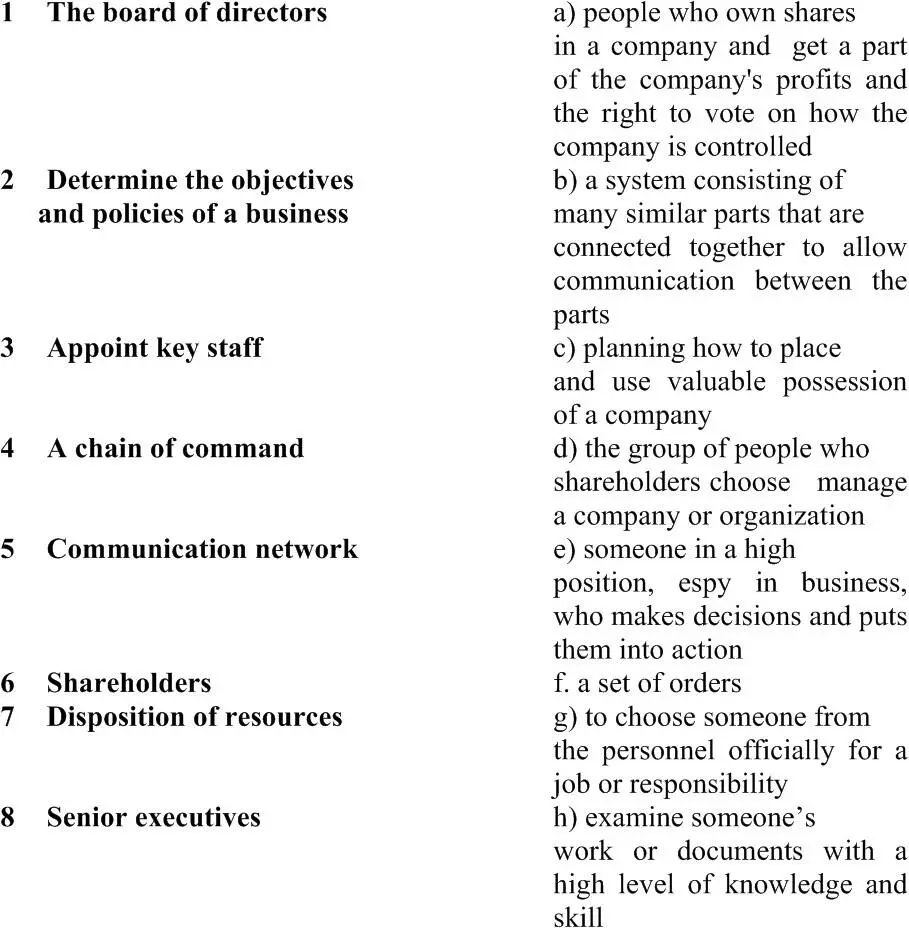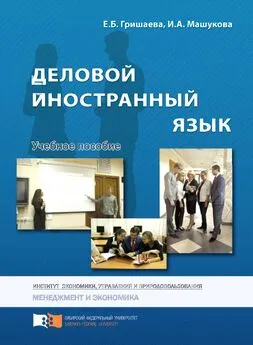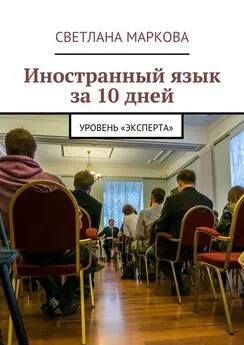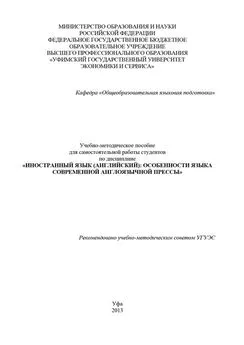Елена Гришаева - Деловой иностранный язык
- Название:Деловой иностранный язык
- Автор:
- Жанр:
- Издательство:неизвестно
- Год:неизвестен
- ISBN:978-5-7638-3296-9
- Рейтинг:
- Избранное:Добавить в избранное
-
Отзывы:
-
Ваша оценка:
Елена Гришаева - Деловой иностранный язык краткое содержание
Деловой иностранный язык - читать онлайн бесплатно ознакомительный отрывок
Интервал:
Закладка:
Elaboration of agency theory applied to governance issues is contained in the readings.
Further theoretical insights relevant to corporate governance on an international dimension may be found in cross-cultural studies. Research in this area has hardly begun, but suffice it here to comment that both stewardship theory and agency theory are Western in context, assuming rational, unemotional, contractual relationships based on the desirability of order with appropriate procedures and rules, with participative and open styles of relationship and ready access to information. Corporate governance in other parts of the world, throughout most of the Pacific Basin for example, must be practiced within different philosophical traditions, where responsibility, ready acceptance of hierarchical control, respect for authority, paternalism, collectivities rather than individual, and secrecy may be the norm.
Task 2. Talking Point 1
Work in groups of three, consult Speaking References p.126–130 and discuss the following:
▪ What qualities/features does deciding on board nominations depend on?
▪ Expand on being “the wise man”, “the specialist”, “the window-on-the-world”.
▪ Expand on being “the contact-person”, “the figure-head role”, “the status-provider”.
▪ Expand on being “a judge”, “the catalyst”, “the monitor or supervisor”, “watchdog role”, “confidant”, “the safety-valve”.
▪ How much do the basic companies ordinances differ in different countries? Take into consideration: laws rooted in Roman law/within the case-oriented legal structures.
▪ What is the underlying basis of power to nominate and elect directors?
▪ Who does hold the confirming power?
▪ What are the basic responsibilities of the shareholders?
▪ Expand on acting honestly in good faith
▪ What are the main duties imposed on directors?
▪ What is the nature of man in accordance with the original corporate concept?
▪ Expand on stewardship theory/Criticism on “stewardship theory
▪ Expand on the agency theory.
Task 3. Reading 2
Getting started
▪ Before reading the text, discuss in small groups what role plays the board of directors in the governing the company.
▪ Skim the he text to find out if your ideas are similar to those in the text.
▪ While reading the text, pay attention to the words in bold and try to explain them. Consult Vocabulary p. 139–140.
▪ Title the text.
The board of directorsof a limited company is primarily responsible for determining the objectives and policies of a business. It is the directors who determine the direction the business is going to take. They will need to ensure that the necessary funds are available and will appoint key staffto whom they will delegate the authority to run the business on a day-to-day basis. They will need to design an effective organisation structure so that there is both a chain of commandlinking one level of management with another and an effective communication networkso that instructions can be passed downward and information passed upward.
The directors are appointed by the shareholders, normally at the company's annual general meeting, at which the chairman of the board will be expected to account for their stewardship during the previous year. The company's accounts will be presented to the shareholders at that time so they can judge for themselves whether or not the board has been successful.
Direction in business is like strategy in a war situation. The strategic decisions determine the areas in which the company's resources will be employed. Above all it involves planning to ensure that the business first survives and then flourishes. Strategic decisions, made by the board of directors, are concerned with the disposition of resources. These contrast with the tactical decisions by means of which the senior executives(appointed by the directors) carry out in detail the plans conceived or approved by the board of directors.
The fact that boards of directors tend to meet rather infrequently, say once a week, means that part-time directors can be elected to the board. Since they will not have departmental responsibilities within the company they are often described as non-executive directors. There are arguments in favour of such directors though they may lack a detailed knowledge of the company's activities. They may bring expertiseto the board. Some are lawyers, or experts in tax affairs. Some represent influential groups of shareholders whose support is necessary if the board is going to carry out its plans, while others are directors in a number of companies and are used to interlock boards within a group of companies. For example, a holding (or parent) company may appoint a director from their board to serve on the board of a subsidiary company, with a view to keeping a watching brief on the directors' activities.
Task 4. Talking Point 2
Work in groups of three, consult Speaking References p. 126–130 and discuss the following:
▪ Why delegating is used in running the business?
▪ What role do the senior executives play in the company?
▪ What happens at the annual general meeting?
▪ What is the difference between a strategic and a tactical decision?
▪ What part can non-executive directors play in the proceedings?
▪ What is meant by an interlocking board of directors?
▪ How is it that a board of directors can control a company though they only meet, say, once a week?
Task 5. Vocabulary 1
A. Match the phrases from the text (1–9) to their definitions (a– i).


B. Fill in the blanks in the text below, using the words from the box:
link, company’s, actively, coming, increase, delay, sell, company’s, capital, provided, run, spent, certain, mixture, brand, overseas, combines, course, coming, faced, benefit, appointed, marketing, financial, general, advertising, complex, buy, directors, management, post, appointed
A modern business enterprise is often a system requiring a lot of ______, which is provided by the public when they _______ shares in the company. Since they have _______ the capital, it is appropriate that they choose the people who are to _______ ________ the company for them, namely the board of directors. Many of the_______ also have executive responsibilities.
Thus, a marketing director might be a full director of the board, _______ by the shareholders at the annual _________ meeting like the other directors. Yet he might also be responsible for the day-to-day ________ of the marketing department. Most of his time will be _______ on administrative matters, organising market research, dealing with _______ and generally ensuring that the ______ sales are maximised. But he will function as a director when the board of directors meets. The _______ of managing director also ______ the role of chief executive with membership of the board and this allows him to act as a vital _______ between the board of directors and their ________ management team. The managing director is often also chairman of the board of directors.
Executive directors have the advantage that they are ______. Involved with the ________ affairs. If the board of directors wishes to move in a ______ direction the executive directors will know whether such a ________ of action is practicable. For example, the board might wish to ______ their products in a particular ________ market. The market would be profitable for the company, but the ________ director knows that his teams of salespeople lack the experience to take advantage of the situation. Or perhaps the board would like to _______ the advertising expenditure during the ______ year but the _______ director knows that the company will have to meet some heavy commitments during the _______ months and it would be better to _______ the campaign.
Perhaps the best board is one which contains a _______ of executive and non-executive directors. In this way the board has the ______ of some directors who know the practical problems ________ by the business, while others bring their own ________ of expertise to the boardroom discussions.
Task 6. Vocabulary 2
Multiple choice. Read the text again and check that you have understood the main points by choosing the best answer a, b or c to these questions:
1. When the directors are discussing the problems facing the company they primarily have to consider
a) the interests of the public.
b) their own interests.
c) the interests of the shareholders.
2. When a proposal is made and a vote taken the usual arrangement is that
a) each director has one vote no matter how many shares he hold.
b) only the chairperson can vote.
c) the directors with most shares have the most votes.
3. Key members of staff will be chosen by the managing director because
a) he is more knowledgeable than the other directors.
b) he has got to answer to the board for their performance.
c) he earns more than the other directors.
4. Non-executive directors will often be appointed because
a) they have valuable contacts with potential customers.
b) they have departmental responsibilities.
c) no-one else is available.
5. Directors are usually required to have shares in the company so they can
a) be seen top have a personal stake in the business and thus be affected by their decision.
b) receive share certificates from the registrar's department.
c) take on administrative duties.
6. Strategic decisions are concerned with
a) the details of day-to-day Administration.
b) the disposition of the company's resources.
c) the payment of wages.
7. While decision-making powers are commonly delegated to senior executives
a) the directors are not responsible to the shareholders for any mistakes which might be made
b) they are not responsible for any errors of judgement.
c) the directors remain responsible to the shareholders for any mistakes which might be made.
8. The further ahead one plans
a) the more troubles there are likely to be.
b) the more one can anticipate problems and thus avoid them.
c) the less one can anticipate problems.
9. Tactical decisions are those by means of which the senior executives
a) carry out their own plans.
Читать дальшеИнтервал:
Закладка:










